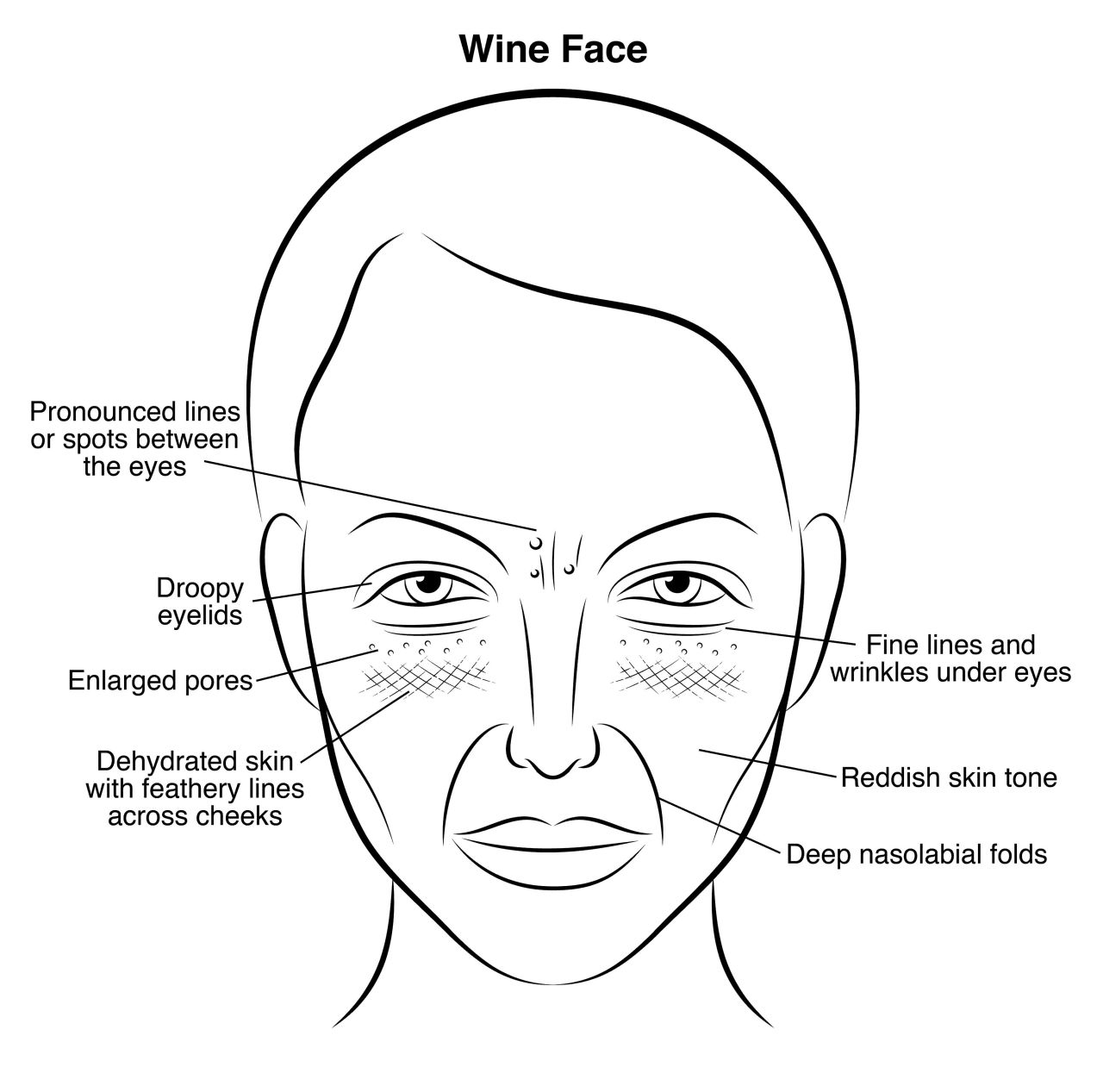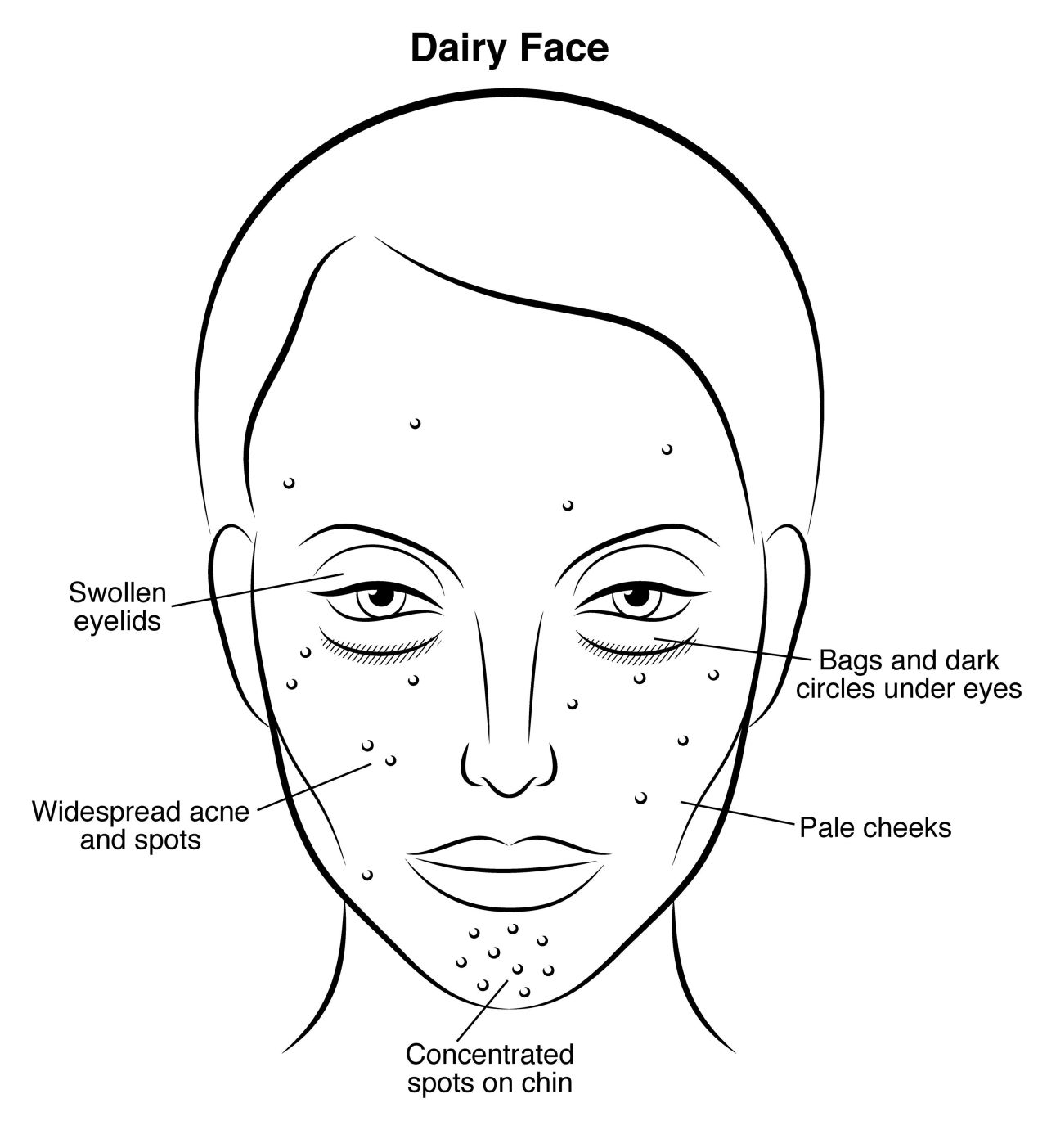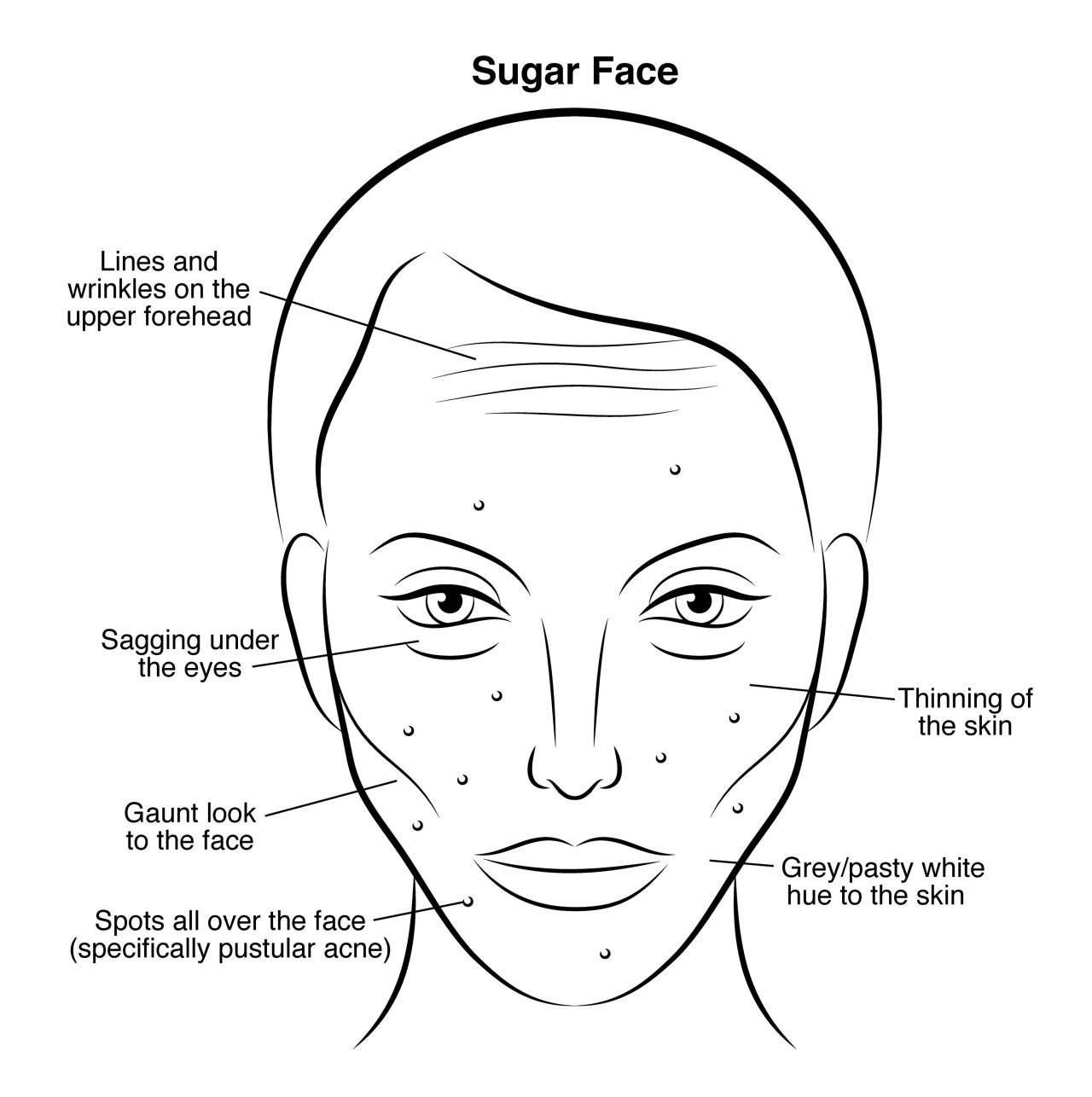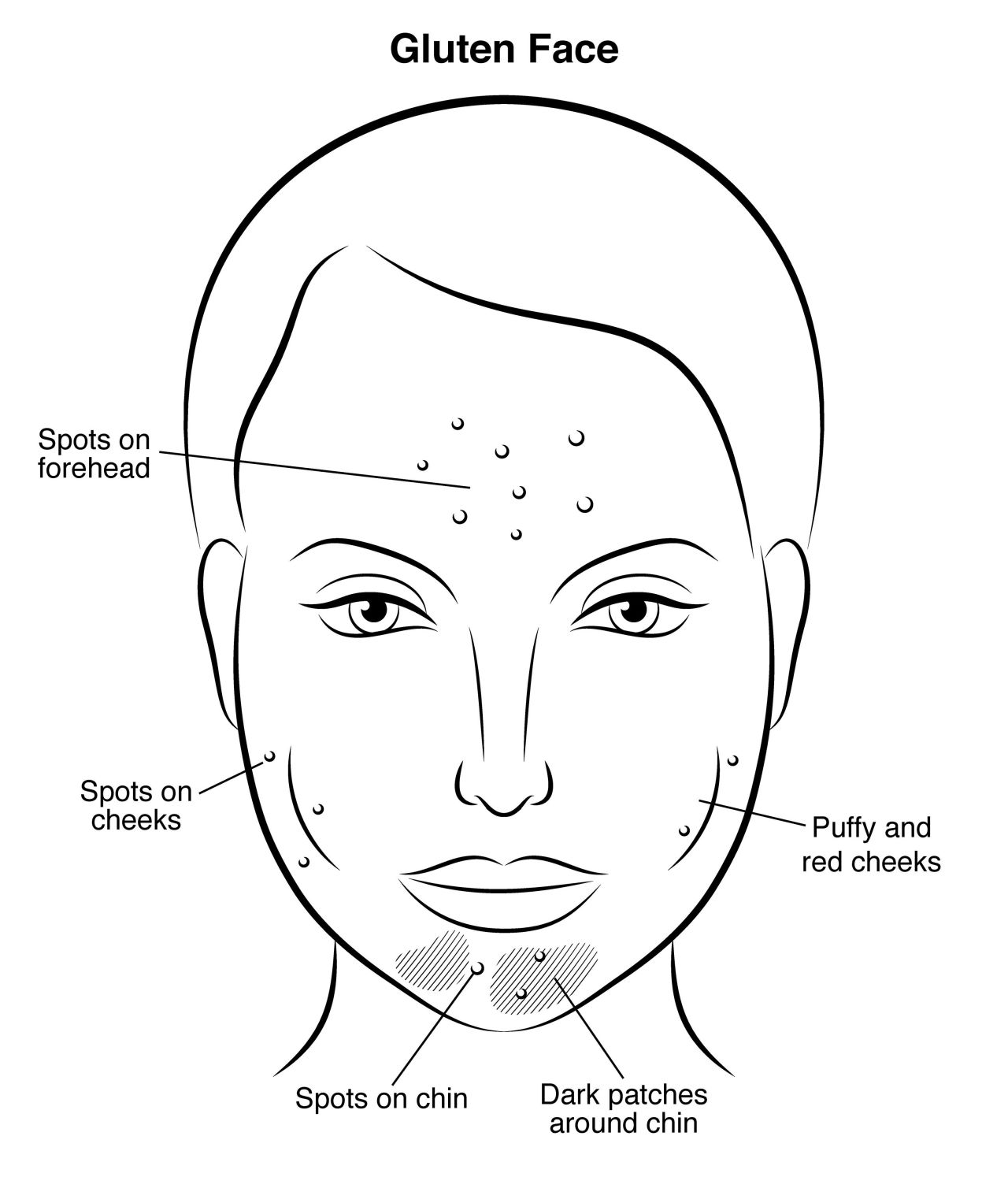Related - 6 Natural Remedies For Dry Skin
Not only does she claim she can distinguish which foods someone overeats based on their complexion, but she's even come with names for each not-so-healthy look, including "wine face," "dairy face," and so on.
Curious if you have one of these "faces"? Dr. Talib has created handy visual aids to help you figure it out. We also chatted with her to find out ways to combat these annoying skin problems — and get a healthier complexion.
 |
| Courtesy of Ulysses Press |
Wine Face
There are plenty of benefits of drinking red wine — in moderation, that is. Just as red wine can stain your teeth and mess with your mouth, it can lead to your skin looking ruddy and lined.See - The Negative Effect Of Alchohol On Your Teeth
The Symptoms: Pronounced lines or blemishes between the eyebrows, droopy eyelids, pronounced fine lines and wrinkles underneath the eyes, dehydrated skin with feathery lines across the cheeks, enlarged pores, a reddish skin tone, and deep nasolabial folds.
What It Means: "On top of the fact that it's full of sugar — as well as potentially pesticides and sulphites — wine causes dehydration," Dr. Talib told Good Housekeeping . She adds: Your body loses water, your liver is overworked, and your digestion can go "haywire" the day after indulging, leading your skin to look wrinkly, ruddy, and saggy.
Even worse than the short term effects: If you drink excessively on a regular basis, Dr. Talib warns that you can disrupt your gut's bacteria, leading it to be potentially pathogenic, meaning it can cause diseases. In short, drinking a fourth glass of wine multiple times per week just isn't worth it.
Related - 5 Health Benefits Of Drinking A Glass Of Wine Everyday
So, how much wine is safe for your skin — and how can you get rid of these symptoms? "I recommend taking a break from alcohol for three weeks," she advises. After that, Dr. Talib suggests living an "80:20 life," where you have a glass or two of wine 20% of the time, but totally abstain from booze the other 80%.
 |
| Courtesy of Ulysses Press |
Dairy Face
The Symptoms Swollen eyelids, under eye bags, darkness under the eyes, widespread acne and blemishes, pale cheeks, and concentrated pimples on the chin.Related - 5 Completely Natural Ways To Brighten Your Mood And Looks
What It Means Putting an extra splash of milk in your coffee or adding just one more scoop of ice cream to your sundae may be tempting, but Dr. Talib warns that it can seriously upset your complexion — even if you're not lactose intolerant.
"As you get older, you lose the enzymes that let you properly digest lactose," says Talib.
This leads to inflammation all over your body, including your face, which can appear tired and red.
If your face is starting to appear swollen and sleepy, and your skin looks dull and bumpy, Talib recommends taking a break from dairy all together for a few weeks to see how different your complexion can look.
 |
| Courtesy of Ulysses Press |
Sugar Face
The Symptoms Lines and wrinkles on the upper forehead, sagging under the eyes, widespread blemishes and pustular or cystic acne, gaunt appearance, thinning of the skin, dark gray or pasty white hue to the complexion.Related - This Is What Happened to My Skin When I Quit Sugar for a Week
What It Means It's no secret that consuming a bunch of sugar on a regular basis can wreak havoc on your weight, energy, and overall health, but it can also mess with your skin. Sugar leads to glycation, a process in which excess glucose molecules cling to your collagen, distorting it and leading it to be stiff.
If you really want amazing skin and you're sick of seeing all those spots and fine lines, we've got bad news for you.
"I recommend avoiding sugar as much as possible — there's nothing nutritious about it," says Talib, but adds that it's okay "every now and then, in moderation." Key word: moderation.
 |
| Courtesy of Ulysses Press |
Gluten Face
The Symptoms Blemishes across the forehead, puffy cheeks and jowls and a bloated appearance to your face, redness and/or red sports on the cheeks, blemishes or darkened patches on the chin.What It Means That's right: There's another reason gluten might be taking your body for a rough ride. While relatively few people have coeliac disease, an autoimmune disorder that leads to the body to attack itself when gluten enters the system, Dr. Talib says that many are still sensitive to gluten.
"Gluten causes a leaky gut, and leads to your inflammatory cytokines acting up in a cascade of systemic inflammation," warns Talib.This reaction leads to your skin cells producing pigmentation, which is why you can develop dark patches and spots. If you're sick of unevenness in your complexion, especially around your chin, Talib advises removing gluten from your diet all together.
From Goodhousekeeping










0 Comments
For More health, fitness tips and motivational tips Follow us on
Instagram: @naijagym
Facebook: @naijagym
See other Related Articles below